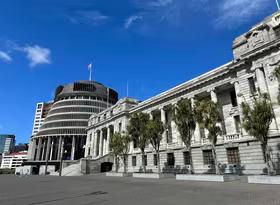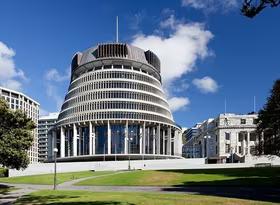Government industry assistance is rarely good for the economy
The Government’s decisions to change New Zealand’s labour laws and give additional tax breaks to Warner Brothers in response to the Hobbit brouhaha raises a broader question about the circumstances under which it is appropriate to give a particular industry a helping hand with public money. I would argue that government assistance is only justified on economic grounds if it has a sustained payoff for the wider economy. Assistance to an individual firm or group of firms does not necessarily translate to wider economic benefits and may on balance lead to wider costs unless certain specific conditions hold.
The jobs that are directly created from government assistance should not be seen as a sign of economic success on their own. Weal so need to consider what would have happened to the economy had the assistance not been given. It is here that the generally perceived benefits of industry assistance usually disappear. Ultimately most of the people employed in supported firms would be employed in other firms either within the same industry or in alternative industries. Extra employment is not sustainably created in the national economy by industry assistance as the past experiences of New Zealand and countries overseas shows. Total job growth in a country is determined by more general conditions for businesses such as stable political and economic environments, and policies that encourage entrepreneurship and flexible labour market.
The question then becomes do the jobs and activity generated in the supported industry add more value to the economy than the jobs that would otherwise be created in other areas in the absence of government support? This is difficult to determine as jobs concentrated in the protected industry would need to be compared with alternative jobs widely dispersed among many industries. It is foolhardy for the Government to provide industry assistance on the belief it knows where value will be created in the economy better than the hundreds of thousands of business owners and investors who have intimate knowledge of their markets and have their own money at stake. Unfortunately, this has been the misguided basis of many past failed government attempts to pick winners.
There may, however, be a prima facie case for supporting a particular industry if there are specific barriers that prevent firms within it from fairly competing in markets. Some industries may face domestic tax or regulatory disadvantages not faced by other industries. Because of New Zealand’s long distance from overseas markets, small start-up exporters may initially find it more difficult than other exporters to find out about market opportunities. It is best these types of barriers are addressed directly. Because this may not always be feasible, in a limited number of cases support to firms within an industry to overcome the barriers may be justified.
Another reason why the Government might reasonably consider supporting a particular industry is if its activities have significant benefits for the wider economy and if the industry would not exist without support. Such benefits, termed "spillovers", include materially raising the profile and activity of other industries or generating new knowledge and skills in the supported industry that can also be used productively in the wider economy. These spillovers need to be truly additional to what would have occurred in the absence of government support to be justifiable on the basis of improving New Zealand’s overall economic position. They do not include, for example, the tax that would be paid by the firms receiving the benefits, even if they are foreign firms that would not otherwise operate in New Zealand. This is because activity would otherwise occur elsewhere in the economy resulting in tax emanating from those sources.
Even in cases where initially there might seem to be good economic reasons for government assistance there is a big proviso the expected payoff to the economy needs to be large enough to outweigh the cost of raising the revenue to fund the intervention, including the distorting effects the higher taxes have on peoples’ decisions to work, spend and save. That is a high hurdle that only a limited number of government interventions in a few specific instances are ever likely to get over.
The Lord of the Rings trilogy is believed to have had a substantial positive impact on the New Zealand tourism industry. So it might be presumed that spillovers in this area provide a reasonable economic case for the Government’s assistance to Warner Brothers. But will the Hobbit movies have a similar impact, or will the gains be incrementally smaller? With tax breaks for the Hobbit producers estimated at around $85 million, the costs are substantial. Hopefully the Government’s economic advisors crunched the numbers to see how the full costs and benefits to New Zealand might stack up and these will be revealed for the public to see.




